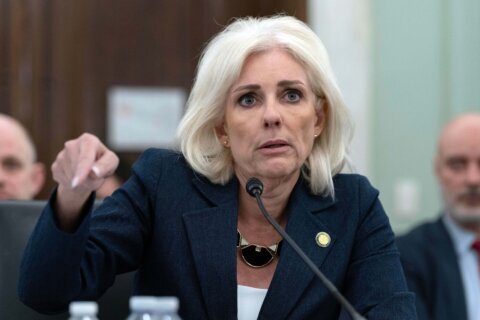WASHINGTON — Virginia’s General Assembly adjourned late Friday night after passing an ethics reform bill that one delegate describes as an attempt to resolve the “Jonnie Williams problem”.
Williams is the supplement company boss who gave then-Virginia Gov. Bob McDonnell and first lady Maureen McDonnell well over $100,000 in gifts, loans and trips, leading to the McDonnells’ convictions on corruption charges. Both have been sentenced to prison time, but are appealing.
The new ethics bill applies to all lawmakers and candidates at any level of government in Virginia, as well as all officers and employees of Virginia governments and advisory boards or agencies and all of their immediate families. But the final version passed by the General Assembly would not be enacted until Jan. 1, 2016, after this year’s statewide election.
It caps all individual gifts from lobbyists and from people or businesses that have or are seeking contracts with the government at $100, and maintains the existing standard requiring that only individual gifts worth more than $50 must be reported on state disclosure forms.
The original legislation signed into law last year capped only so-called “tangible gifts” at $250, but it left no limits on things like travel, tickets or trips.
This year’s bill requires that free travel exceeding the $100 limit be approved by a nine-member ethics council. It was the final outstanding measure debated in a conference committee between the House and Senate before they adjourned Friday.
Under the bill, the disclosure forms would now be posted publicly online six weeks after they are filed. The delay is intended to give the ethics advisory council, which will include a member of the House and Senate from each party, retired judges, and representatives of the municipal league and Virginia Association of Counties, a chance to alert filers to potential errors and allow for some personal information to be redacted.
Lobbyists and businesses would still be free to continue donating to politicians’ campaigns, since the bill does not change any campaign finance rules.
Anyone filing a disclosure form would be protected if they get an opinion from the advisory council, attorney general, or a city, town or county attorney that signs off on their planned travel or gift. Depending on the violation, violators who are not protected could face civil penalties or a class five felony conviction.
The bill codifies the practice that Gov. Terry McAuliffe has been following since he self-imposed the $100 cap on his first day in office of paying for any value of a gift above $100 in order to accept it. It also allows gifts to be either paid for entirely or donated to charity, as long as the gift is not used. The bill also permits the “equivalent in money” to be donated to charity within “a reasonable period of time upon the discovery of the value of the gift,” as long as the donation is not claimed as a charitable contribution on tax forms.
There are exceptions to the rules for “widely attended events” where at least 25 people are invited or expected, any food or drinks consumed as part of an event where the person filing the form is performing official duties, or is a featured speaker, and travel paid for by the government, disclosed on a campaign finance form or used to get to or from an official meeting or national legislative conference.
The bill maintains an existing exemption for gifts from relatives or personal friends. The personal friend exemption is nebulous, but the law directs those filing disclosure forms to consider the circumstances of the gift, the history of the relationship with the person, who paid for the gift, and who else might have gotten similar gifts.
It also allows gifts from foreign dignitaries, provided that those gifts will be considered gifts to the state or local government rather than to the individual officeholder.
The $100 gift cap will be adjusted for inflation every five years.
McAuliffe says he is glad the General Assembly acted and supported the $100 ban that he and Republican leaders each supported from the beginning of this year’s session.
He can sign the bill, or send it back to the General Assembly with changes. If he does send it back, the changes would be considered at the reconvened session on April 15







